Rangers have had a turbulent season, to say the least.
After failing to win crucial games at the end of last season, their rivals Celtic won their third title in a row.
Having changed manager three times since Rangers won the Scottish Premiership under Steven Gerrard, the Teddy Bears have missed an essential element to their title charge—a clinical centre-forward.
In their title-winning campaign, Rangers had Kemar Roofe, who scored an impressive 14 goals in 24 games.
Alfredo Morales, Ryan Kent and James Tavernier all chipped in with double figures.
Last season, captain James Tavernier scored a remarkable 17 league goals from right-back.
New arrival Cyriel Dessers scored 16 goals in 35 games, outperforming Celtic forward Kyogo Furuhashi in the scoring charts.
Dessers was the first Rangers forward to score over 15 league goals since Alfredo Morales in the 2018/19 season.
However, his performances have yet to convince fans.
Currently, Rangers sit in third place.
An abysmal start to the season has seen them fail to qualify for the Champions League and lose vital fixtures against Celtic and Aberdeen.
Rangers are now threatened with finishing outside the top two places in the Scottish Premiership, which is unimaginable for most supporters.
Dessers has garnered much blame for Rangers’ poor start to the season.
The Nigerian forward has scored four league goals so far this season, yet this is below the expectations of the demanding faithful.
Many other aspects of his performances have also fallen below the required standard.
Rangers will undoubtedly be looking to strengthen their forward options, with supporters losing patience with Dessers and Brazilian forward Danilo’s inconsistent performances due to the length of time he spent out injured.
This data analysis has two aims.
To identify the issues with Dessers’ performances and to create a shortlist of players that could potentially fill the role of Rangers number 9.
What Are Cyriel Dessers’ Shortcomings?
Football fans can often be fickle, and their opinions can sometimes lack evidence to support their claims.
So what can statistics tell us about Dessers’ failures in a Rangers shirt?
Cyriel Dessers Radar Map
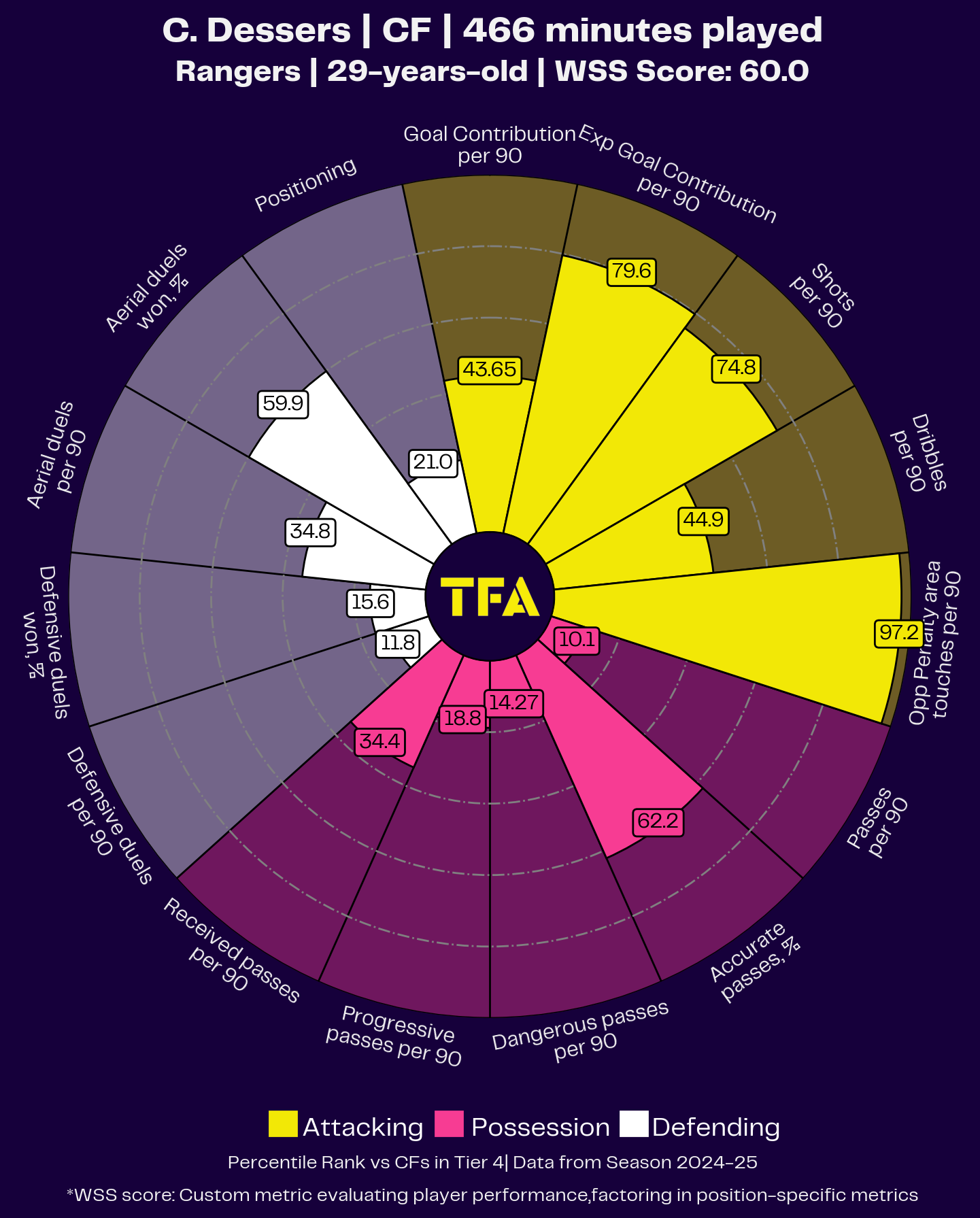
First and foremost, Dessers has scored goals for the Rangers.
It doesn’t take high-level analytical thinking to comprehend that 32 goals in 74 games is a decent return.
Despite his ability to find the net, Rangers fans are irritated by his lack of consistency when taking chances.
There is data to back the argument that Dessers lacks the ability to be clinical.
Last season, he scored 24 goals across all competitions, yet he had an expected total of 31.8 goals.
This season, he’s once again failing to match his xG goals total, averaging 0.44 and 0.56 goals per 90 minutes, respectively.
Cyriel Dessers Shots Map
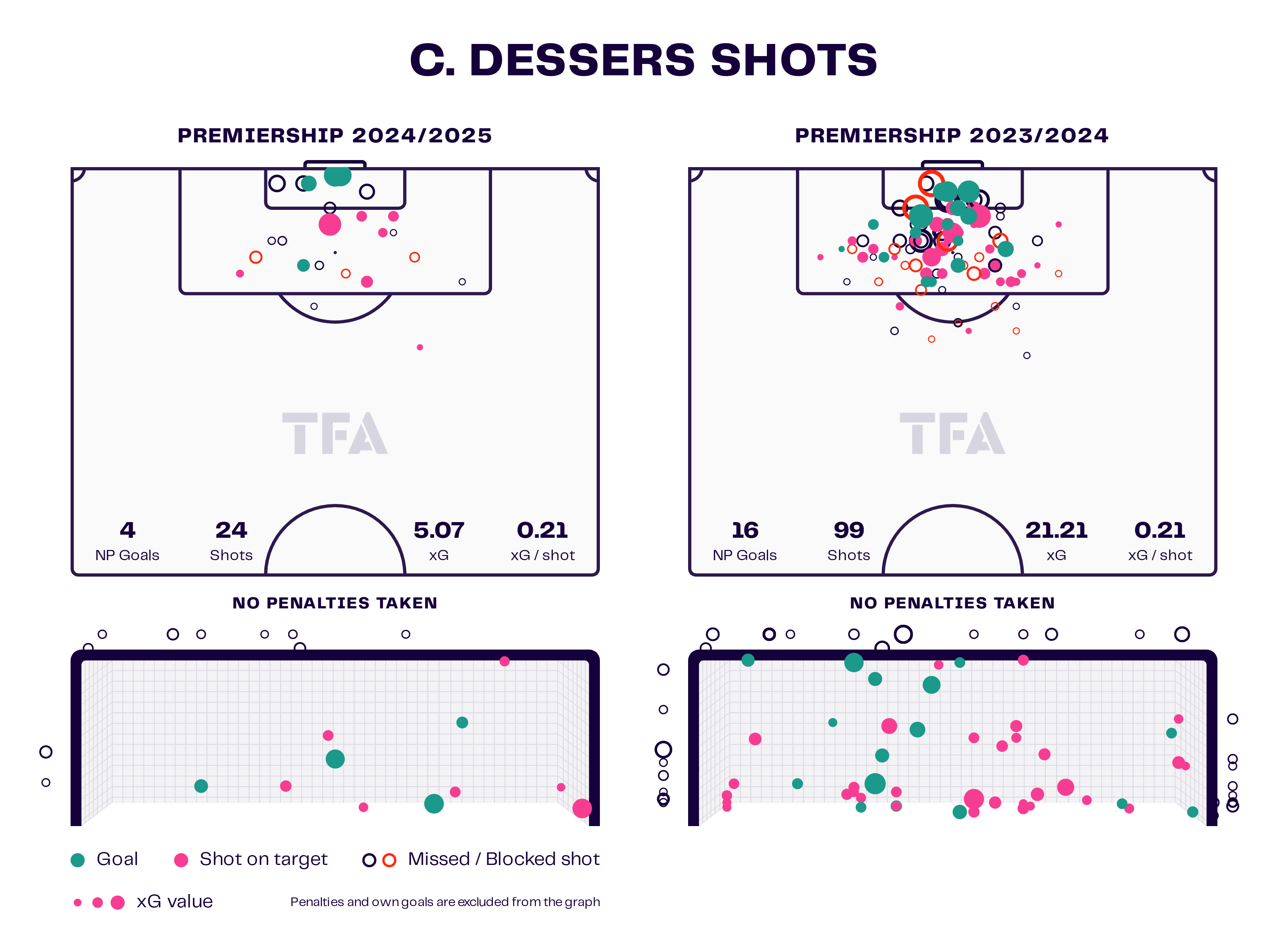
If you look at Dessers’ shot maps across two seasons, you can see he’s missed a considerable number of chances with high xG value.
This can be seen clearly in and around the six-yard box.
However, despite goalscoring being a hugely important factor in why fans have been disappointed with Rangers number 9, other areas of his game have failed to impress.
Dessers’ hold-up play and ability to bring teammates into the game have often been questioned.
The evidence can be seen when analysing key statistics.
He has a percentile rank of 32 for aerial duel win percentage compared to centre-forwards who have played over 200 minutes in the Scottish premiership this season.
He also scores poorly regarding his ability to create chances, with the Belgium-born striker having a percentile rank of 36 for key passes and 29 for shot assists.
His ability to defend also appears poor when considering the data.
He only wins back possession 0.8 times per 90 and has a percentile rank of 15.6 for defensive duels win percentage.
All of these factors have frustrated The Gers faithful.
From a recruitment perspective, Dessers’ transfer also provided an element of risk.
He was signed when he was 28 years old for £5m.
Signing a player at their peak means expecting them to hit the ground running and be consistent top performers.
Dessers has failed to do that.
His poor performances as he approaches his thirties mean he will unlikely be sold for a profit.
Rangers have failed to follow in Celtic’s footsteps when it comes to selling players on.
Rangers have recently sold some of their prized assets for substantial profit.
Calvin Bassey and Joe Aribo, who were both recruited on free transfers, were sold for £22.3m and £7.1m, respectively.
Despite these successes, other key players, such as Alfredo Morales and Ryan Kent, were let go for free after previously being two of the most sought-after talents in Scotland.
Since 2018, Celtic have sold six players for over £15m, with both Jota and Matt O’Riley breaking the record for a fee received by a Scottish Premiership side over the past two seasons.
The Search To Find Rangers A New Striker
The search for a new forward was
conducted across five leagues: the EFL Championship, Serie B, Ligue 2,2. Bundesliga and Spanish Segunda Division.
Due to a change in GBE rules, Rangers can recruit from these markets and find potentially undervalued gems.
There were two filters for the search.
All players had to be 26 years old or under to find a mix of prospects and players reaching their prime while excluding players who are at an age where they’re unlikely to have any resale value.
The second filter was players needed to play a minimum of 500 minutes to ensure that all players were playing enough so that the statistics gave a fair reflection of the player.
Finding A Goal Machine
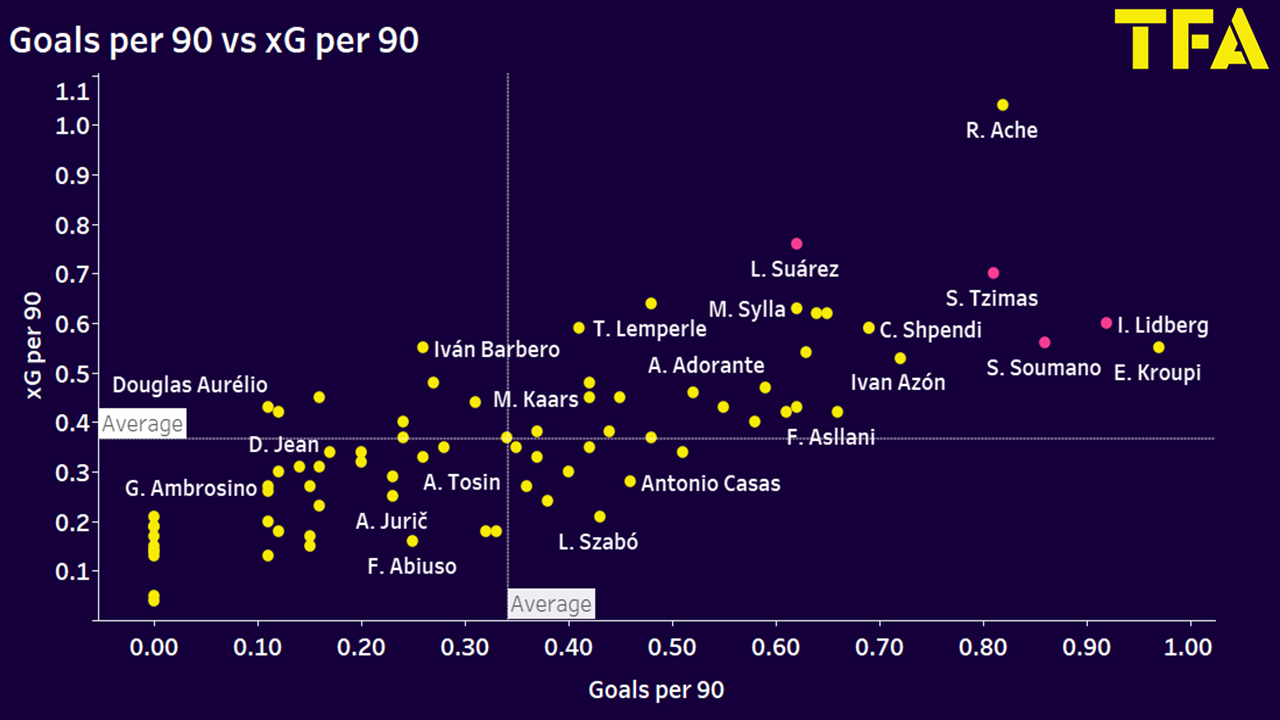
The search started with finding players scoring above average in Goals per 90 and xG per 90.
This helped discover four interesting profiles.
Stefano Tzimas (Nuremberg), Sambou Soumano (Lorient), Luis Suárez (Almeria) and Isac Lidberg (Damstardt).
Finding a player who is clinical in front of the goal is essential, as Dessers’ primary criticism has been this.
However, further analysis was carried out to discover the strengths and weaknesses of each player.
Aerial Duels
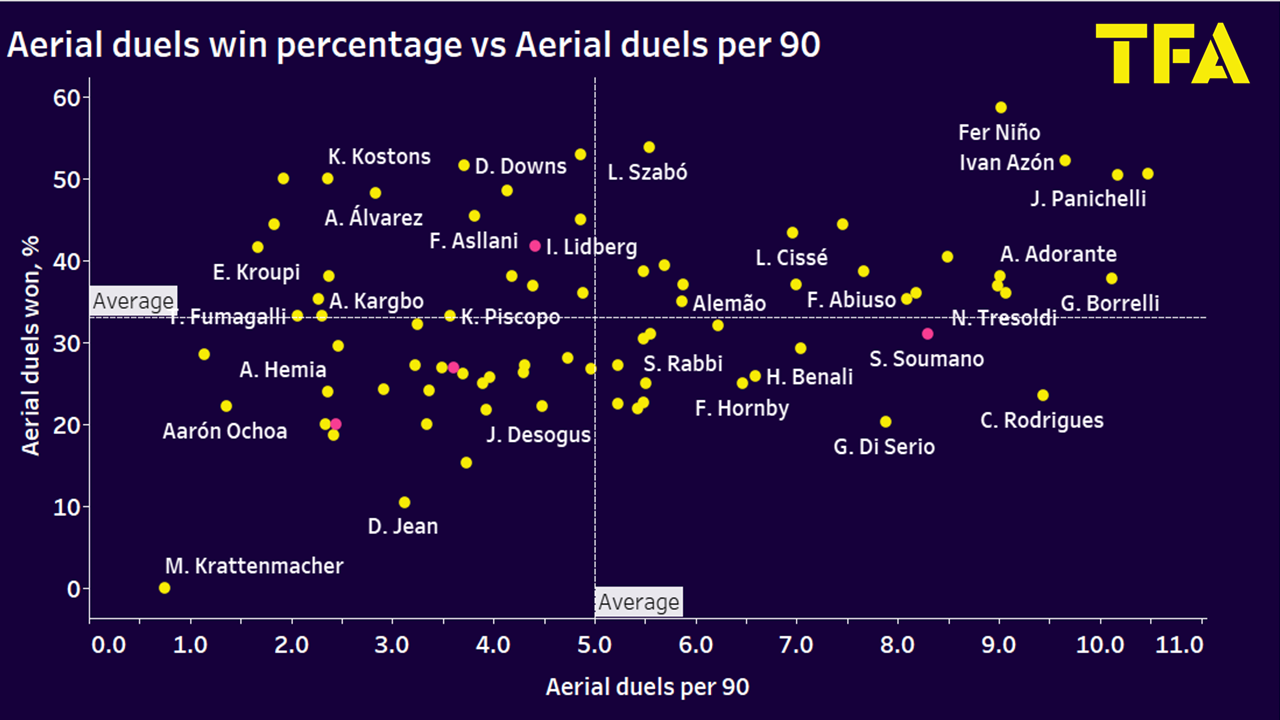
Winning balls in the air is one of the key attributes that often help strikers thrive in the Scottish Premiership, which has often been deemed a league reliant on the physical side of the game.
Lidberg is the most efficient of the forwards.
Despite being below average in the number of aerial duels he competes in, he is significantly above average in winning the ball in the air.
His aerial duel win percentage of 41.86% is significantly higher than Dessers’ percentage of 27.78% in the same metric.
Pressing
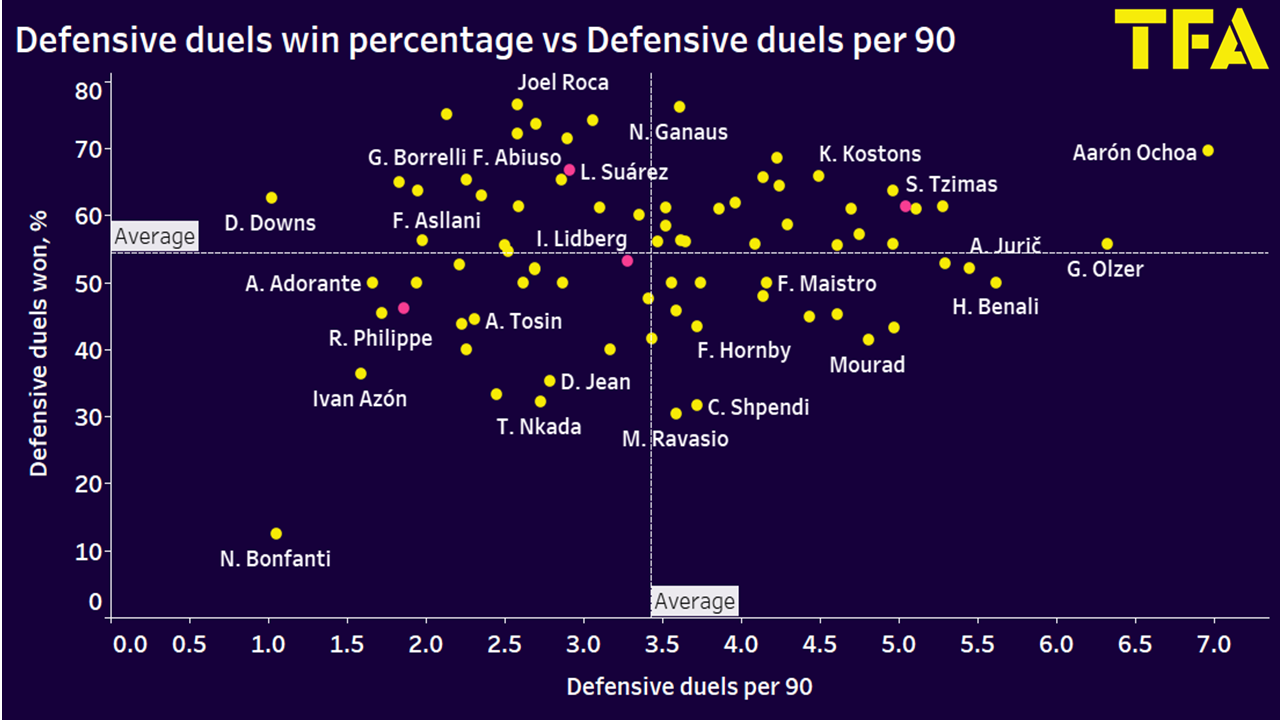
The role of the centre-forward has transformed throughout the years, and today’s attackers need to press effectively.
There’s a clear outlier in the data, as Tzimas scores above average in both the number of defensive duels and the defensive duel win percentage, with the latter having an impressive figure of 61.9%.
Suárez also impresses with his high defensive duel win percentage.
Both players have a higher percentage win rate than Dessers.
Creating For Teammates
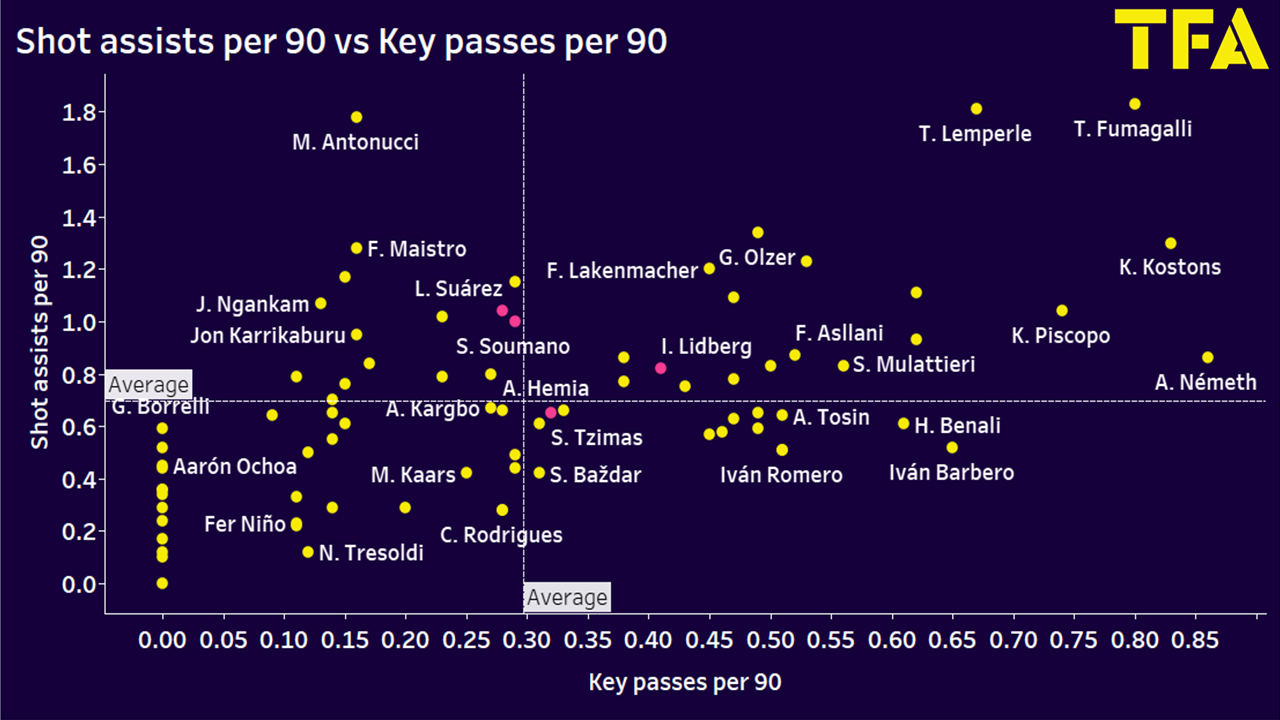
Linking up with teammates and contributing through creating chances is a must for any side’s number 9.
Once again, Lidberg has exceeded the average of both metrics and is statistically the best at intentionally creating chances.
However, Soumno and Suárez score highly when judged on their ability to perform general actions that lead to shots.
The Hot Prospect: Stefanos Tzimas Scouting Report
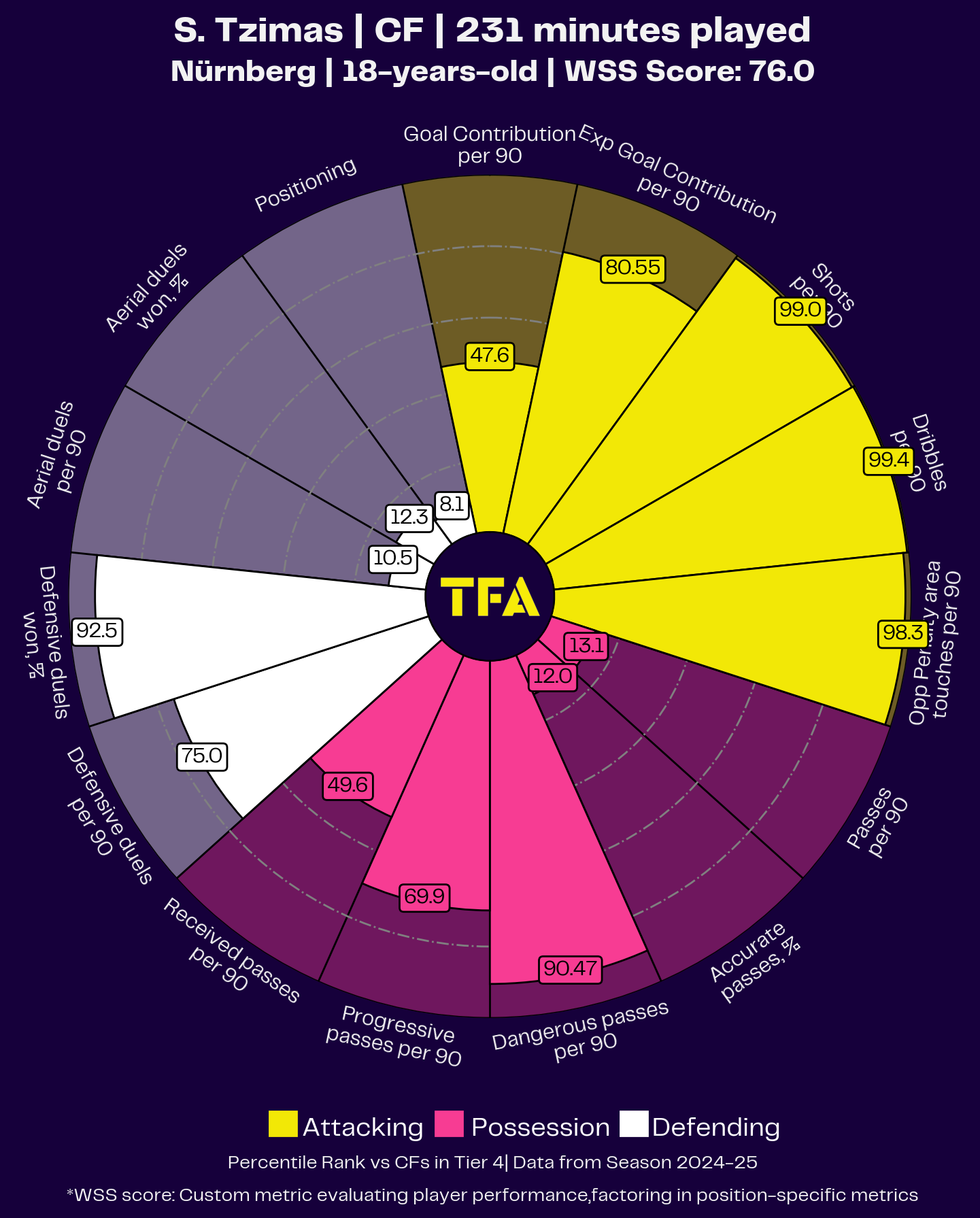
18-year-old Stefanos Tzimas is PAOK’s youngest-ever goalscorer and is spending a successful season on loan from the Greek giants.
His percentile ranks show that he’s thriving in multiple areas.
Despite only having a percentile rank of 47.6 for goal contributions, his impressive goals per 90 ratios of 0.81 exceed his xG per 90 figure of 0.70.
The Greece U19 international also impresses with his pressing, dribbling and dangerous passes.
However, he shows a lack of competence in the air, which may go against him if he were to make the move.
Tzimas would be a fantastic option to come in and play second fiddle to Dessers, pushing the Nigerian for a starting spot.
At 18, he also has a great opportunity to be sold for significant profit if he performs.
Ready for Scotland: Isac Lidberg Scouting Report
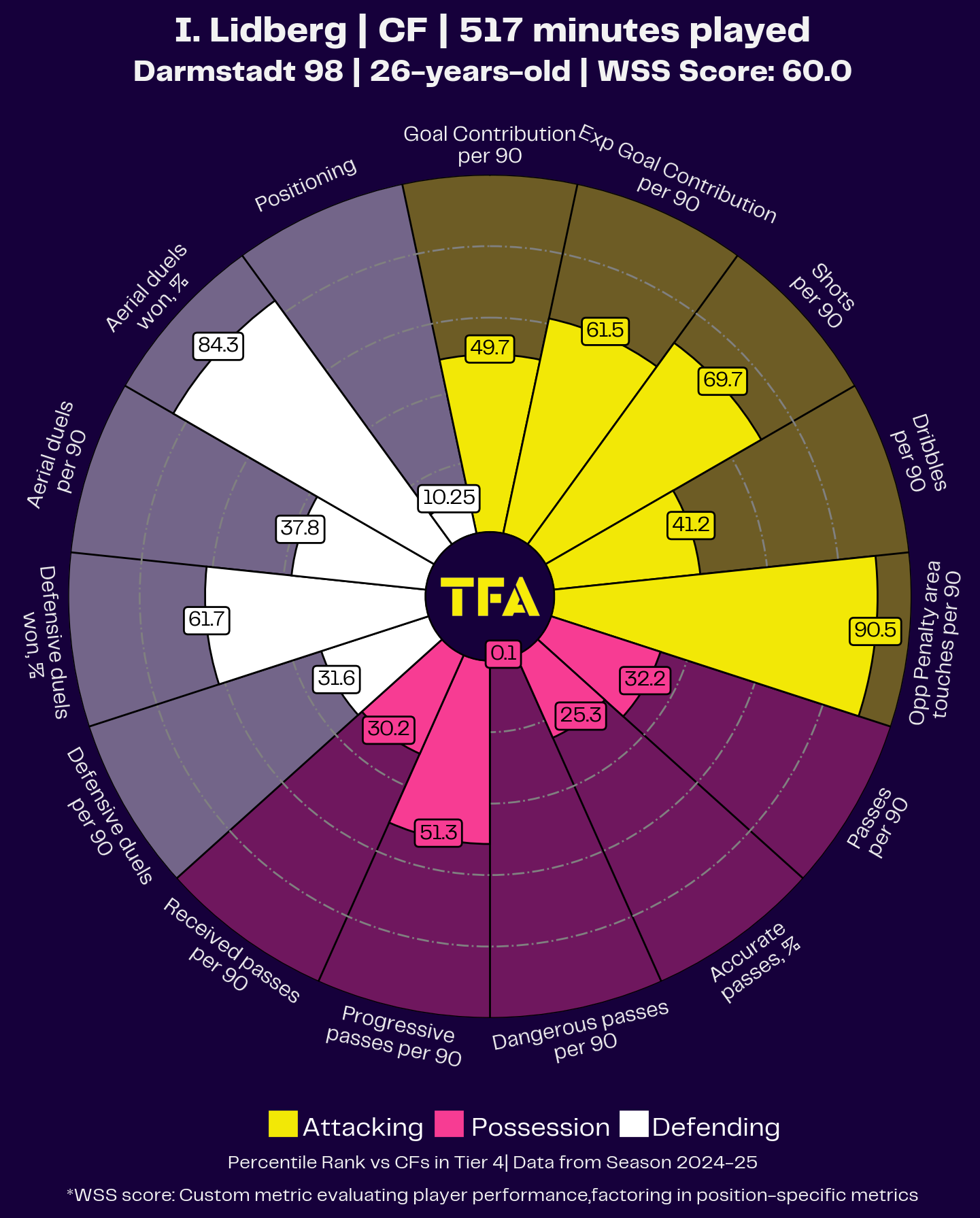
Having just turned 26, Lidberg is approaching his peak.
The Swedish forward has nine goals in 10 games while also providing three assists.
Lidberg impresses with his ability to do the dirty work of a forward, as he has an impressive percentile rank of 61.7 and 84.3 for defensive duels win percentage and aerial duels win percentage, respectively.
Standing at 6’1, the forward would have the physical capacity to play in Scotland and could make an instant impact if signed in January.
However, having only signed in the summer, it’s unlikely that Darmstadt would let their prized forward leave midway through the season.
Rising Star: Sambou Soumano Scouting Report
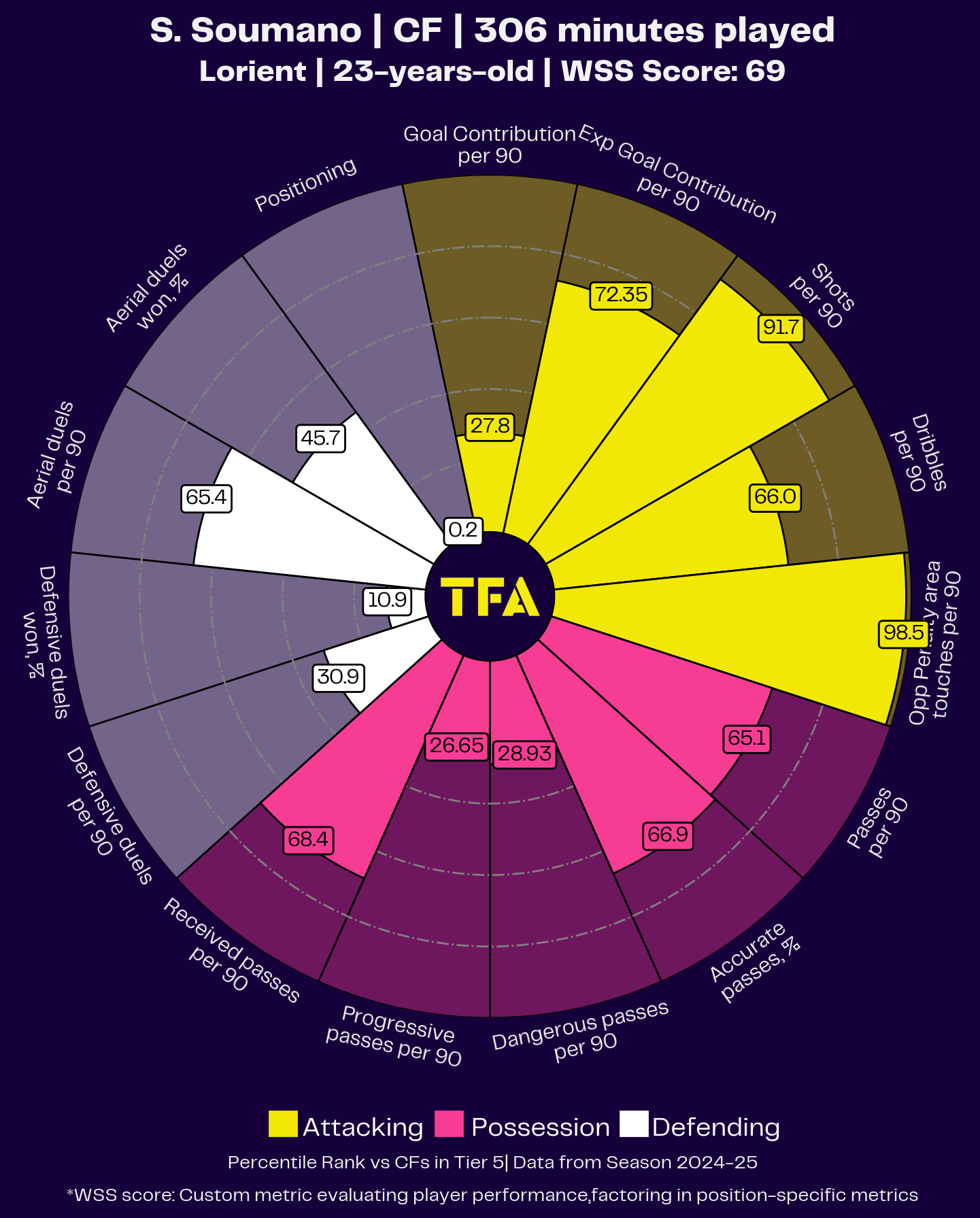
The 23-year-old is impressed with his ability to exceed his total expected goals.
Averaging 0.56 xG per 90, the Senegalese striker has exceeded this figure with a total of 0.86 goals per 90.
Since joining from Youth Elite Foot in Senegal, Soumano has enjoyed various loans in France and Belgium.
He’s finally cementing himself into Lorient’s first team and playing a vital role in their push for promotion from Ligue 2, contributing eight goals in 12 matches.
Despite not appearing to have any other real super strengths, his outputs of aerial duels and shot assists show his positive strengths that could be further developed.
Instant Impact: Luis Suárez Scouting Report
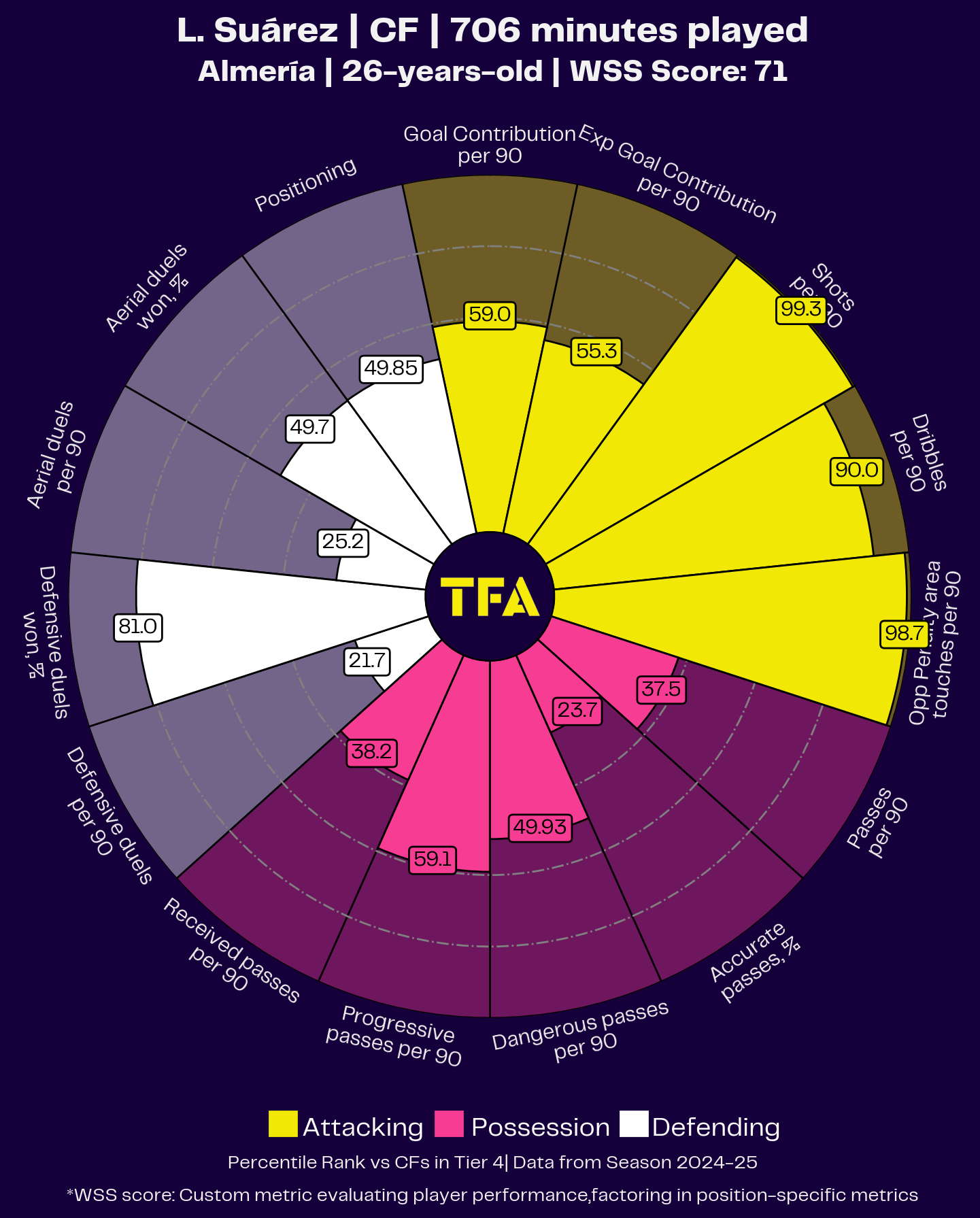
The Colombian international turns 27 in December and is finally showing consistency with his impressive goal return of 9 goals in 13 games.
As already discussed, he’s impressed with his goals, ability to press and, as seen from his radar chart, his dribbling ability.
Having just moved from Marseille for £8m, securing Suarez in the next six months would likely take a substantial fee.
His lack of presence in the air may also be worrying, and he could not cement himself in British football at Watford.
Yet there’s no doubt Luis Suárez has many aspects of his game that could make him an excellent acquisition for the Rangers’ front line.
Conclusion
Rangers will look to reinforce in January and try to salvage what has been one of the most abysmal seasons in recent memory.
However, the January market is always difficult to operate in.
These four options could be monitored closely by Rangers as strikers who could be brought in for next season as Rangers look to rebuild.

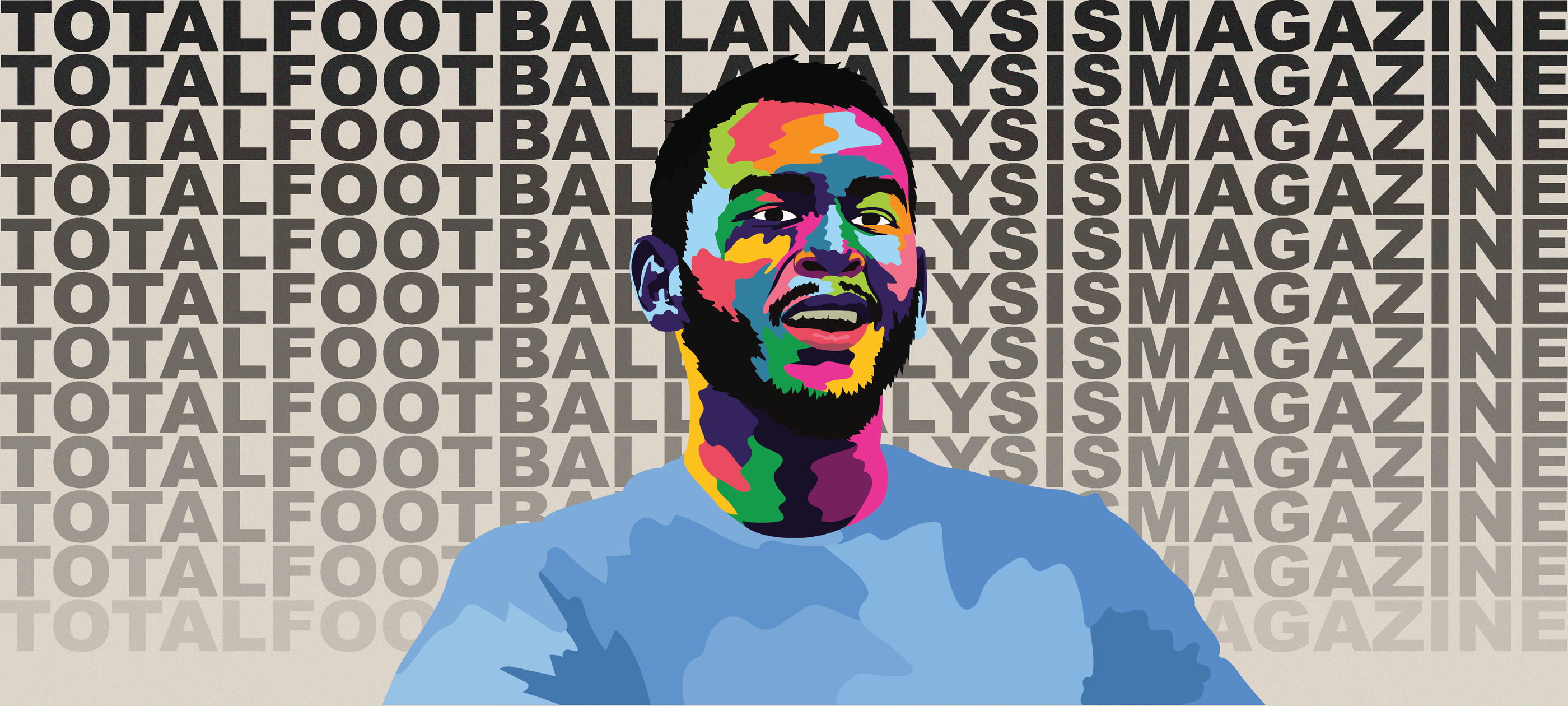



Comments